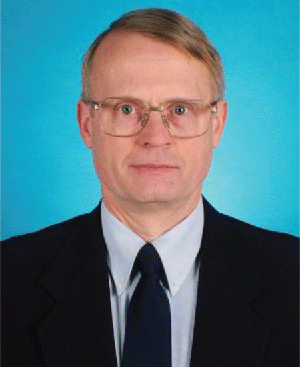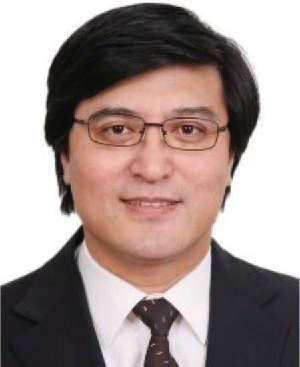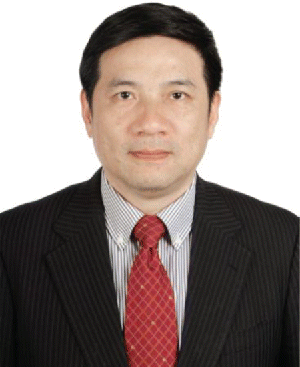Many Heat Transfer Engineering fields are undergoing very rapid advances with new technologies, new industries and new length and time scales all requiring that the heat transfer community develop new heat transfer solutions. In addition, the world is facing the need to significantly improve the effectiveness of all types of heat and mass transfer processes to improve energy utilization rates and reduce environmental effects. The first International Symposium on Heat Transfer (ISHT) in Beijing was chaired by Prof. Buxuan Wang in 1985 with eight additional Symposia then sponsored every three to four years after that by the Engineering Thermophysics group of the Department of Thermal Engineering, Tsinghua University. These nine ISHTs have included many papers describing current heat transfer research and many fruitful discussions of recent heat mass transfer research advances among the multinational delegates. The 9th Symposium, ISHT9, was chaired by Honorary Symposium Chairman Professor Bu-Xuan Wang and Symposium Chairman Professor Pei-Xue Jiang 15–19 August, 2016. This Symposium, like the previous eight, included papers covering a wide range of topics related to heat transfer engineering including experimental and numerical methods, micro/macro heat and mass transport mechanisms, renewable and unconventional energy resources, and many other fields. Thus, these Symposia have provided an ongoing stimulating international forum for researchers from all over the world to share their current results. ISHT10 will be held in Beijing in 2020 to further promote these dialogues.
ISHT9 was held in the scenic Fragrant Hills Park in western Beijing, China, with over 150 participants from 15 countries/regions. The most outstanding papers were then recommended for submission to Heat Transfer Engineering (HTE). These papers were all reviewed by an international team of reviewers for inclusion in the Special Issue of Heat Transfer Engineering for ISHT9. The 10 papers selected for this issue represent some of the most important issues being addressed by the international heat transfer community.
In closing, special thanks are due to the authors of the papers in this special issue. These authors have worked diligently in meeting the review schedule and responding to the reviewers' comments. Our sincere thanks also go to the excellent reviewers who have provided valuable comments to the authors. In addition, we take this opportunity to thank Professor Afshin Ghajar, Editor-in-Chief of Heat Transfer Engineering, who has whole-heartedly supported this conference. His tireless efforts in assuring high-quality publications are sincerely acknowledged.
Additional information
Notes on contributors

David M. Christopher
David M. Christopher received his Ph.D. in Mechanical Engineering from Purdue University in 1982. He then taught in the USA at Lafayette College for four years before moving to the Thermal Engineering Department at Tsinghua University, Beijing, China. He is now a full professor at Tsinghua University after teaching there for 13 years. His research interests include convection heat and mass transfer in microscale and microgravity systems, convection heat and mass transfer in two-phase systems, heat, and mass transfer during boiling and condensation, and computational methods for convection heat and mass transfer. He has published numerous papers on heat and mass transfer in porous media, microscale systems, boiling heat transfer, and numerical methods for convection heat transfer applications. He serves as an associate editor of Experimental Thermal and Fluid Sciences. He received the “Best Paper Award” at the International Conference on Integration and Commercialization of Micro and Nanosystems, 2007. He also received the Chinese Bureau of Foreign Experts' Friendship Award in 1994.

Peixue Jiang
Peixue Jiang is a Professor in the Department of Thermal Engineering, Tsinghua University, Beijing, China. He received his bachelor's at Tsinghua University in 1986 and his Ph.D. in the Department of Thermal Engineering of the Moscow Power Engineering Institute in 1991. He then joined the faculty of Tsinghua University and was promoted to full professor in 1997. His main research interests are fundamental research on convection heat transfer in porous media and enhanced heat transfer, convection heat transfer of fluids at super-critical pressures, transpiration cooling and film cooling, thermal transport in micro/nano-scale structures and spray cooling, migration and heat mass transfer of super-critical CO2 in porous media for conditions related to geological storage and oil/shale gas recovery, and enhanced geothermal system. He has published more than 130 scientific publications in refereed international journals, 120 international conference papers, 150 papers published in refereed Chinese journals, and 2 book chapters in Chinese. He has won the National Natural Science Award second prize, and he is the recipient of the National Science Fund for Distinguished Young Scholars award from the National Natural Science Foundation of China, and the 8th Beijing Youth Science & Technology Award. He is a Chang Jiang Scholar of the Ministry of Education, a nominee for the New-Century National Talented Persons Plan, and is a leader of the Science Fund for Creative Research Groups from the National Natural Science Foundation of China. He is now Director of the Institute of Engineering Thermophysics in the Department of Thermal Engineering of Tsinghua University, Director of the Key Laboratory for Thermal Science and Power Engineering of the Ministry of Education, and Director of the Beijing Key Laboratory of CO2 Utilization and Reduction Technology. He is a Council Member of the Chinese Society of Engineering Thermophysics, Vice Chairman of the Chinese Heat and Mass Transfer Society, Member of the Department of Energy and Transportation in Science and the Technology Committee of the Ministry of Education. He is an advisory editorial board member of Experimental Heat Transfer and Heat Transfer–Asian Research and is an editor of Petroleum and MPEI Bulletin.

Xing Zhang
Xing Zhang is the Director of the Institute of Engineering Thermophysics in the School of Aerospace Engineering at Tsinghua University, Beijing, China. He received his Ph.D. degree from Tsinghua University in 1988 and worked as a Lecturer at Southeast University after his graduation. From 1990 to 2006, he worked as a Research Associate, an Assistant Professor and an Associate Professor at Kyushu University in Japan. He returned to Tsinghua University as a Professor in 2006. His current research interests include micro/nanoscale heat transfer, thermophysical properties of nanostructured materials and the efficient use of wind/solar/hydrogen energy sources. He has published over 300 refereed journals and conference publications, and delivered more than 50 Plenary, Keynote, and Invited Lectures at major technical Conferences and Institutions. He is currently an Assembly Member of the International Heat Transfer Conference and an Executive Committee Member of the International Center for Heat and Mass Transfer. He serves as an associate editor of the International Journal of Heat and Mass Transfer. He received the “Significant Contribution Awards” from the 10th Asian Thermophysical Properties Conference in 2013, the “National Natural Science Award (Second Class)” from the State Council of the People's Republic of China in 2011, and the “Best Paper Award” from the Heat Transfer Society of Japan in 2008.
